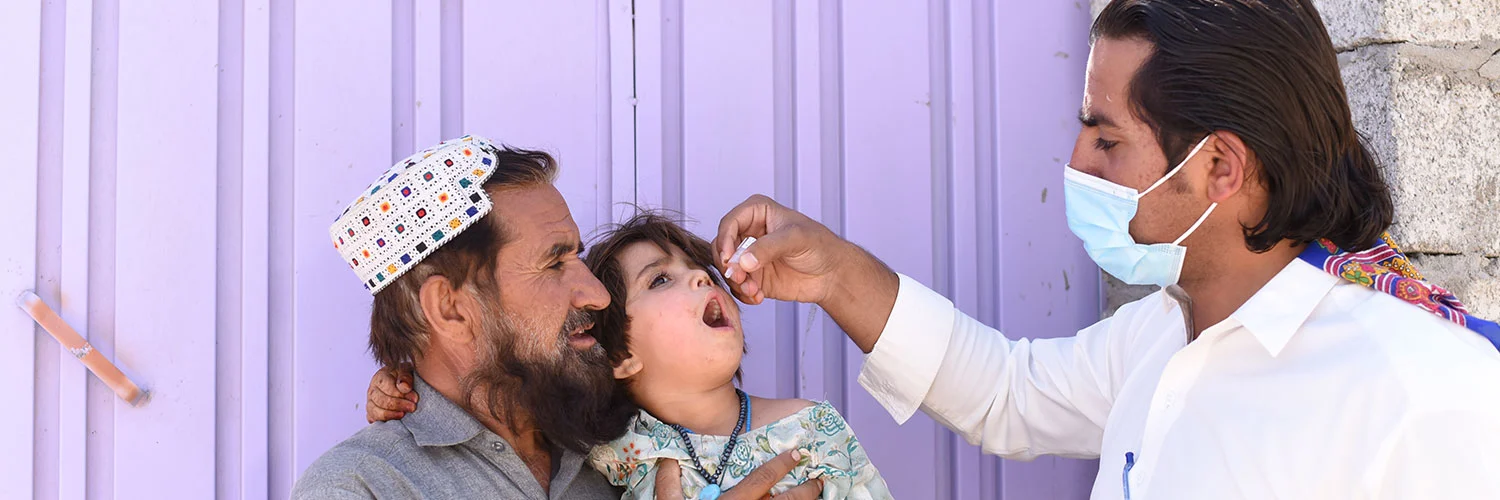Bali, April 18, 2018 – The Prime Minister’s Focal Person on Polio Eradication, Senator Ayesha Raza Farooq has said that innovations, out of the box approaches, courageous decision-making coupled with vigilant support of government were key to turning around the alarming polio situation in Pakistan and bringing about a 97% reduction in polio cases over the past four years.
The Senator was delivering a keynote address at the Social and Behavior Change Communications (SBCC) Summit in Nusa Dua, Bali, Indonesia. The 2018 International Social and Behavior Change Communication (SBCC) Summit featuring Entertainment Education was organized to better understand what works in shifting social norms, changing behaviors and in amplifying the voice of those who have most at stake in the success of development efforts. It is designed to wrestle with the profound issues of social justice and agenda setting that affect these decisions.
Pakistan’s progress in the fight against polio was selected as one of inspirational example for the world’s social behavior change experts. In her address to the summit, Senator highlighted the extensive changes brought about in programme operations and communications; namely, the use of the Emergency Operation Centers as highly effective nerve centers for steering the operations, systemic and efficient use of data and data collection tools to implement data driven programming, and innovative communications strategies that encouraged greater community trust in the programme like hiring and training female community based vaccinators to reach hard to reach children - inside the home, on the move, or even the smallest of infants resting in their mother's lap.
Senator Ayesha Raza Farooq’s keynote address and valuable inputs during the panel discussions were met with widespread appreciation and recognition from all global participants. The Social and Behavior Change Communications (SBCC) Summit gave the Pakistan Polio Eradication Initiative an ideal global platform to showcase Pakistan’s tremendous achievements thus far.
Amidst applause and appreciation from global participants at the summit, Senator Ayesha thanked the “we owe our tremendous turn around to our brave Sehat Muhafiz for their unrelenting efforts in eradicating polio, as they continuously soldier through rough terrain, difficult climates and security threats to provide vaccines to vulnerable children.”
Addressing a panel on ‘What Works in Communication and Community Management in Complex Social, Cultural and Political Contexts,’ Senator apprised the sector specialists that how Pakistan overcame its plethora of challenges, with a focus on our responses to our most challenging districts, such as Gadap and Killa Abdullah. As such, she said that programme’s efforts to instill greater community trust in the programme, a networking of religious support persons, Communication teams at UC level and hiring from the local communities helped provide safe working environments for Sehat Muhafiz. In return, she said that coverages of vaccination increased and misconceptions and resistance to vaccine dropped dramatically.
This panel discussion simulated extremely pertinent dialogue on best practices in communication and community management with other experienced and distinguished practitioners and experts in the polio eradication field. It also helped to shed light on similar challenges and responses implemented in countries like Nigeria, India and Ukraine, and critical brainstorming on how these lessons can empower the world to tackle other social developmental issues, beyond polio.
The 2018 SBCC Summit was hosted by a consortium of international and local partners including the Johns Hopkins Center for Communication Programs, The Communication Initiative, Soul City Institute, UNICEF and BBC Media Action.

